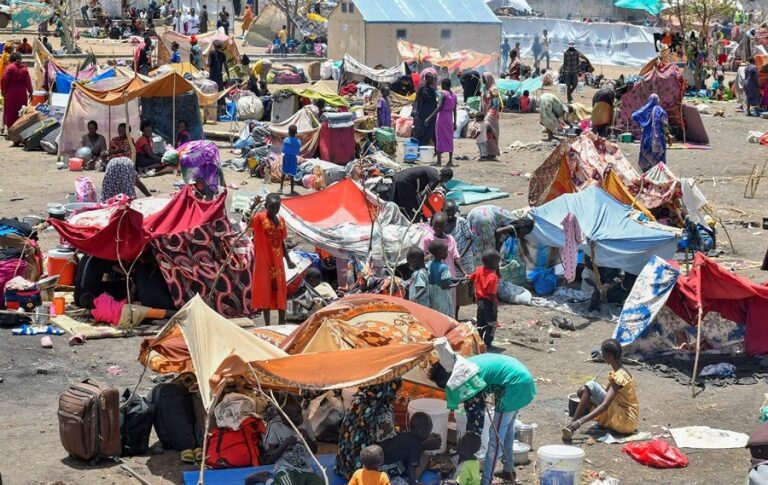25 million people in Sudan need relief aid and protection: UN
September 25, 2023 (KHARTOUM) – 24.7 million people in Sudan urgently need humanitarian aid and protection, the UN humanitarian agency (UNOCHA) said.
About 5.3 million people, it noted, have so far been displaced due to conflict between the Sudanese Armed Forces (SAF) and the Rapid Support Forces (RSF).
According to the UN and humanitarian partners, at least 72,000 people have been affected by heavy rains and flooding across 16 localities in seven states.
Sudan, OCHA revealed, was grappling with a protracted economic crisis and pre-existing conflicts before its current fighting involving its national army and RSF.
Over the past three years, it noted, there has been a notable rise in the number of people in need of assistance, surging from 50.1 million in 2021 to 73 million in 2023 in Central African Republic (CAR), Chad, Ethiopia, South Sudan and Sudan.
“This year, humanitarian partners are aiming to reach 51.9 million people with life-saving assistance, a 19 per cent increase compared to 2022,” said OCHA.
It further added, “This includes 2.4 million people in CAR, 4.4 million in Chad, 20.1 million in Ethiopia, 6.8 million in South Sudan and 18.1 million in Sudan”.
According the UN humanitarian agency, despite these pressing needs and overstretched resources, funding remains inadequate to respond at scale.
Last week, the humanitarian agency cautioned that situation in Sudan will get immeasurably worse unless urgent action is taken by the international community.
Five months of brutal conflict between the Sudanese Armed Forces and the Rapid Support Forces, have fueled a humanitarian crisis of epic and tragic proportions.
The fighting, OCHA said, has displaced more than 5.25 million people inside and outside the country since clashes erupted between rival military forces on 15 April.
Within Sudan alone, more than 4.2 million people have been displaced to 3,929 locations across all 18 states as of 19 September, according to a report from the International Organization for Migration Displacement Tracking Matrix (IOM DTM).
“This includes about 114,700 people who were displaced over the past week alone. Most displacement has been to River Nile, South Darfur, East Darfur, Northern, Sennar, and North Darfur states,” it stressed.
IOM further reported that most newly displaced people are staying with host communities (67%) or in rented accommodations (9.5%) in urban areas.
The majority (69%) of those displaced are originally from Khartoum. In addition, over 1 million people have crossed into neighbouring countries as of 13 September, including the Central African Republic, Chad, Egypt, Ethiopia and South Sudan, according to the UN Refugee Agency (UNHCR),” it noted.
According to the UN refugee agency (UNHCR), over 1,200 children have died in Sudan’s White Nile State due to suspected measles and underlying malnutrition.
Last week, humanitarian and human rights organizations urged more assistance and solidarity with Sudan, amid concerns that over 1,000 suspected measles cases were reported, bringing the total number of cases to 4,334 since April 15.
In a joint statement issued, the organizations said Sudan is no longer at the precipice of mass atrocities – it has fallen over the edge. The UN-led humanitarian appeal remains woefully underfunded – at about 31 per cent of what is needed – and Sudan’s warring parties continue to undermine efforts to deliver aid safely.
At least 20.3 million people across Sudan are acutely food insecure and need food and livelihood assistance between July and September 2023, according to the latest integrated Food Security Phase Classification (IPC) on the war-torn nation.
(ST)

